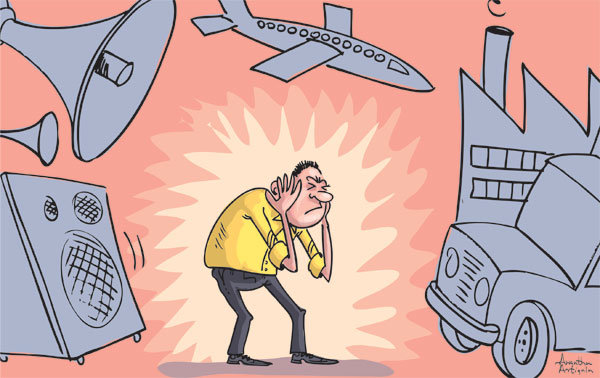“Noise pollution is an invisible danger.“
U.S. agencies have deemed noise pollution “a growing danger to the health and welfare of the Nation’s population”, alongside reports that noise pollution ranks second after air pollution for the most harmful form of environmental exposure to public health.
Noise pollution impacts millions of people daily, with the effect of:
- Noise Induced Hearing Loss (NIHL)
- Tinnitus
- Hypersensitivity to sound
Including its ability to cause or intensify:
- Cardiovascular disease
- Type 2 diabetes
- Sleep disturbances
- Stress
- Childhood learning delays
- Cognition problems
- including memory impairment and attention deficits
Vibrations recorded from noise are also being researched using the stress-response system. Some research has shown that transportation noise is in relation to the heightened activity of the amygdala, which can trigger stress pathways, then potentially leading to greater health risks such as cardiovascular and metabolic diseases.
Noise pollution also impacts wildlife by:
- Causing bluebirds to have fewer chicks
- Inducing a caterpillar’s dorsal vessels (the insect equivalent of a heart) to beat faster
- Minimising navigation abilities
- Reducing the ability to avoid predators
- Damages food location ability
Apart from land-based originators, such as motorways, airports and construction sites, an increase in oil drills, ships, and seismic tests taking place in the ocean has changed the marine environment massively. These developments also cause disruptions in marine animals’ echolocation abilities, therefore harming their communication and navigation abilities.
However, in recording data for noise pollution, better models are needed. With estimates noting that “chronic noise exposure contributes to 48,000 new cases of heart disease in Europe each year and disrupts the sleep of 6.5 million people”, measuring different factors in death counts, including noise pollution, needs consistent measurement. In the case of noise pollution, recording increases of noise in what areas and when is key in preventative health measures and in doctor recommendations so as to support those in potential danger.
Reading:
National Geographic Resource Library – Noise Pollution
Harvard Medicine – The Effects of Noise on Health
LIDO: Listening to the Deep Ocean Environment
National Oceanic and Atmospheric Administration – Soundcheck: Ocean Noise

